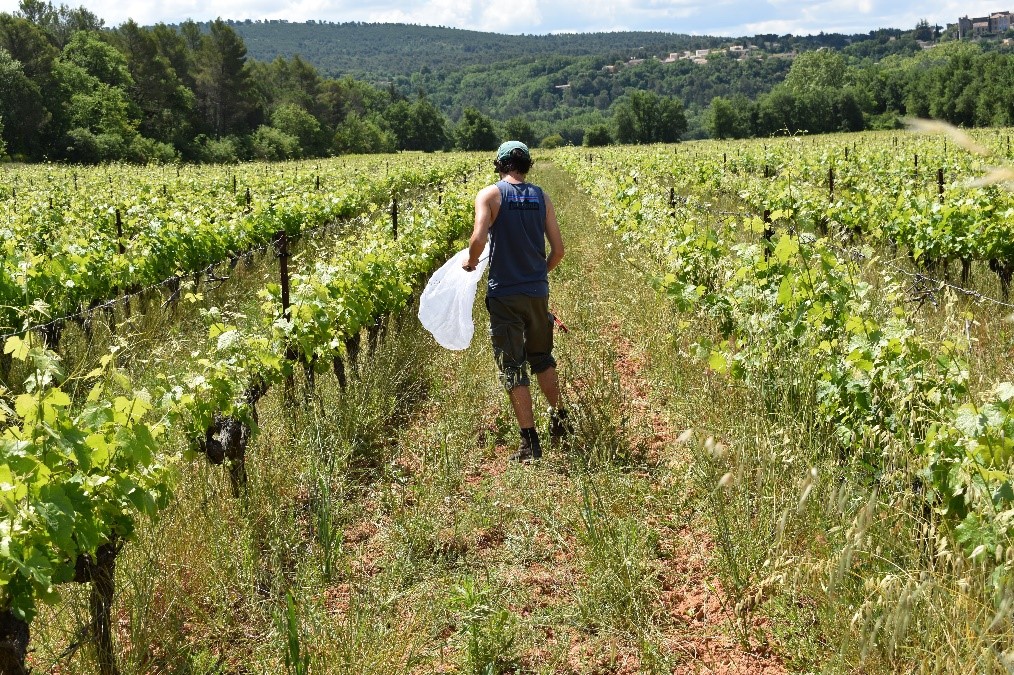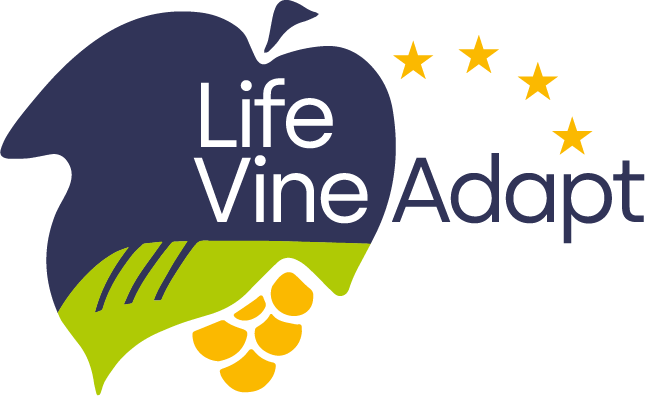[European project] What is the LIFE VineAdapt project?
The LIFE VineAdapt project is a European project, the French part of which is coordinated by two lecturers from theMediterranean Institute of Biodiversity and Marine and Continental Ecology (IMBE - Avignon University): Armin Bischoff, Professor in plant ecology and plant-arthropod interactions and Olivier Blight, Senior Lecturer in entomology and plant-arthropod interactions. The aim of the project is to test and use plant biodiversity (grassing) to increase the resilience of wine production in the face of climate change.
Winegrowing in Europe is having to cope with the effects of climate change. The increase in summer droughts, the high risk of erosion due to heavy rainfall and the arrival of new pests require innovative solutions that preserve ecological functions.
LifeVine Adapt has been set up to experimentally test and analyse potential solutions based on the biodiversity of winegrowing agroecosystems.
This 5-year project will involve eight scientific and technical partners from Germany, France, Austria and Hungary, from July 2020 to June 2025. The project is coordinated by the Landgesellschaft Sachsen-Anhalt (Germany). The French partners areIMBE/Avignon University and the wine cooperative Marrenon (La Tour-d'Aigues, Luberon).
Each country is represented by a research organisation and a partner from the wine industry.
The transfer of knowledge between researchers, vineyard technicians and winegrowers is an essential part of this project. The French study area is the Luberon, while the foreign sites are in Germany, Austria and Hungary.

>> To find out more about LifeVine Adapt, visit the project website
Project news
Summary of the project's first scientific publication - December 2023
Analysis of the influence of inter-row plant composition on predators and pollinators
Habitat destruction and intensification of land use are major causes of the decline in arthropods in agro-ecosystems. Arthropods are key organisms in agroecosystems, linked to numerous ecological functions that are essential for more sustainable agriculture. Using 37 vineyards in the south of France as a model, we analysed which characteristics of spontaneous vegetation between vine rows have a positive influence on beneficial arthropods and the predation of insect pests. We specifically studied the effects of floral cover, grass cover, the ratio of perennials to annuals, plant species richness and the cover of plants producing extrafloral nectar on beneficial arthropod communities in vineyards. We used direct observation and net hunting to assess arthropod abundance. Sentinel cards with Lucilia sp. larvae were placed on vine plants to analyse predation.
We found that most of the beneficial arthropod groups tested were positively influenced by floral cover and plant species richness. In particular, the abundance of predators such as ladybirds (adults and larvae) and crab spiders, as well as the abundance of parasitoid wasps, were positively correlated with floral cover in the vegetation between the vineyard rows. The abundance of ladybirds, hoverflies and crab spiders was also positively correlated with plant species richness. Our results demonstrated the importance of floral resources and plant diversity for beneficial arthropods and pest predation, confirming their key role in the biological control of insect pests.
>> Read more
The future of winegrowing in Europe in the face of climate change
15 June 2023 - Tersys Implanteus Summer School 2
Presentation by Emile MELLOUL & Léo ROCHER - "Effects of vineyard inter-row vegetation and irrigation".
>> Replay on Canal U : https://www.canal-u.tv/chaines/au/effects-of-vineyard-inter-row-vegetation-and-irrigation/
Mis à jour le 6 December 2023
